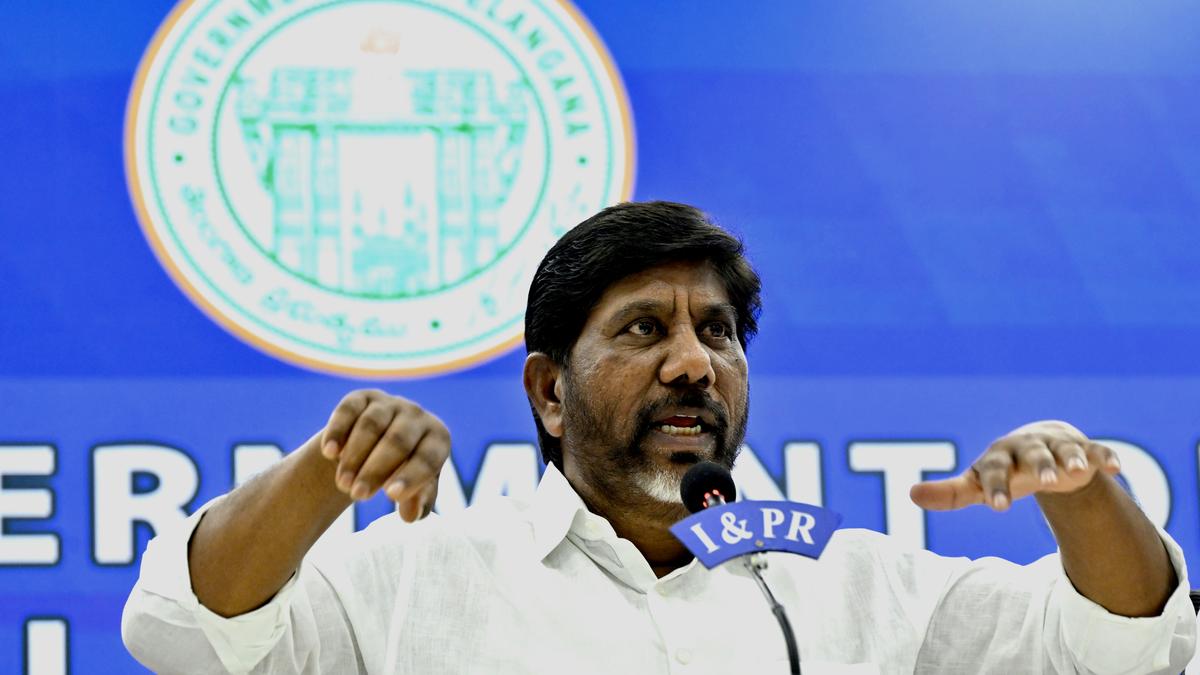
Telangana Deputy CM assures transparency in welfare schemes; rollout from January 26
The Hindu
Addressing a gathering on Sunday, he announced several development projects, including the establishment of a 50-bed hospital in Yerrupalem mandal centre of Khammam district.
Deputy Chief Minister Mallu Bhatti Virkramarka has appealed to people not to be apprehensive about the transparency in the selection of beneficiaries under schemes like Rythu Bharosa, Indiramma Atmiya Bharosa, issuance of new ration cards and Indiramma Houses programmes. He stated that the list of the beneficiaries is prepared in presence of the people by conducting gram sabhas at the village itself. He added that these schemes would be rolled out from January 26 in the State.
Addressing a gathering after inaugurating a Primary Health Centre at Banigandlapadu village of Yerruplalem mandal in Khammam district on Sunday, he announced several development projects, including the establishment of a 50-bed hospital in Yerrupalem mandal centre and promotion of ecotourism activities in the mandal. He recalled the foundation for an urban park at Jamalapuram conducted recently as part of the tourism promotion efforts.
The Minister also announced plans for the development of tanks as tourist spots. Referring to the welfare schemes to be implemented from January 26, he said all eligible families in the State would get ration cards. “We are going to offer ₹12,000 per acre under Rythu Bharosa, while each landless farm labourer’s family will get ₹12,000 annually under Indiramma Atmiya Bharosa schemes,” he added. “

Andhra Pradesh HRD Minister promises an alternative to G.O. 117 and steps to boost admissions in government schools. A total of 10,49,596 students from Classes 1 to 10 moved away from the government schools due to the G.O. issued by the YSRCP dispensation, he informs the Legislative Council. Objecting to a member’s remark on ‘saffronisation in education’, he says the coalition government wants the students to excel, irrespective of caste, religion or region.

The Puducherry government has decided to launch a scheme on April 14, 2025, to distribute free 20-litre water cans to households in places in the Union Territory (UT) where the quality of drinking water has deteriorated, Minister for Public Works K. Lakshminarayanan informed the Assembly on Wednesday (March 19, 2025).











